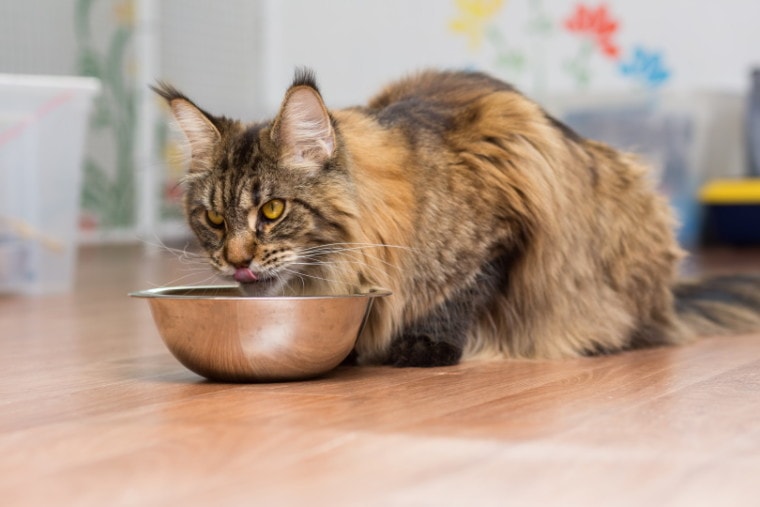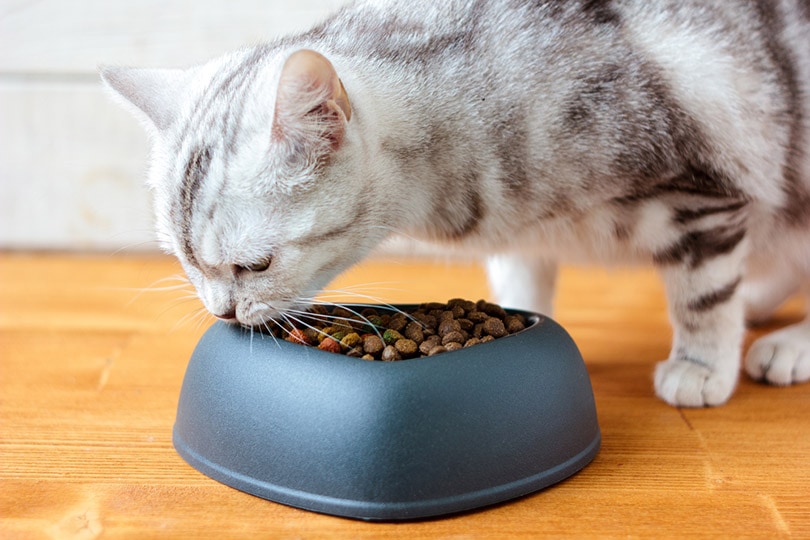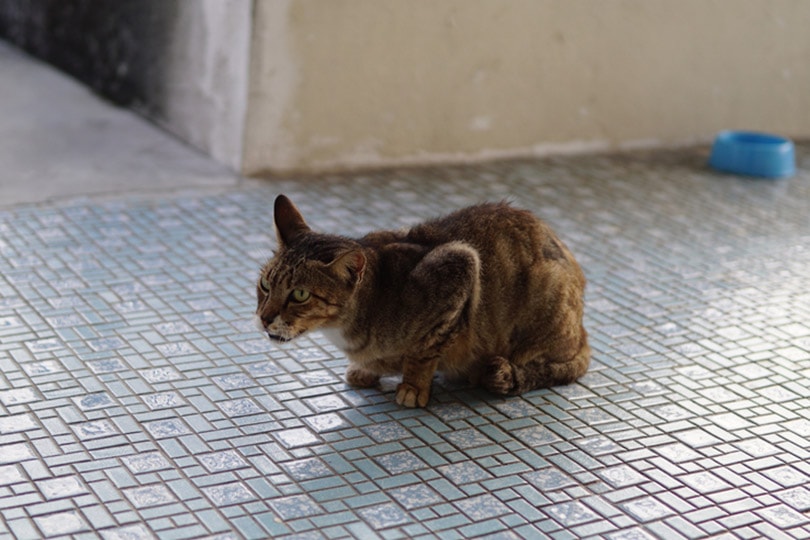
Is your cat always waiting eagerly by the food bowl and dogging your steps in the kitchen? Does it seem like it’s got a ravenous appetite that won’t ever be sated? Or has your cat started losing weight no matter how much you feed it?
Cats should have a healthy appetite, but if hunger seems to be taking over your cat’s day, it’s possible there’s more to it than just getting enough calories. Bear in mind that cats naturally like to eat little and often, around 8 to 10 small meals a day. Excessive hunger could be a sign that your cat’s nutritional needs aren’t being met, but it can also mean that there’s an underlying problem—emotional or medical.
The 7 Reasons Your Cat Is Always Hungry
1. Boredom
If your cat is trying to get food throughout the day, but there’s no sign of anything else wrong, a common cause is boredom or loneliness. Just like humans, cats can be emotional eaters. Food can also be a way to occupy time if your cat is bored throughout the day. In the wild, food goes hand in hand with hunting, which can take up a big chunk of a cat’s waking hours, so replacing that with a few minutes of chowing down can leave your cat with too much time on its paws.
2. Infrequent Feedings
Many owners feed their cat one big meal every day. For many cats, that’s fine—in fact, they might even leave some of their food behind for later! But one meal a day might not be the healthiest choice for your cat. Going a full 24 hours without food might mean that your cat is hungry well before the next meal—even if they’ve already gotten enough calories for the day.
High-quality cat food is an important part of fostering a long and healthy life for your cat but the right cat food and water dish will promote good posture, offer whisker relief, and aid in good digestion. The Hepper NomNom Cat Bowl is our favorite bowl since it offers all of the above and is beautifully crafted to meet modern home stylings. The wide tray design catches any food and water spills and the entire setup is dishwasher safe. Learn more about the Hepper NomNom Cat Bowl here.
At Pet Keen, we’ve admired Hepper for many years and decided to take a controlling ownership interest so that we could benefit from the outstanding designs of this cool cat company!
3. Growth
It’s usually recommended to let growing kittens eat as much as they want so that they’ll have plenty of energy to build muscle and grow to their adult size. But did you know that the “growth phase” of life can last for two years or longer? If you’ve got a young cat, you might be underfeeding it without realizing it. Just like a gangly 15-year-old human might seem to have a bottomless stomach, your “teenage” cat might still need extra calories, even if it’s reached something near adult size.
4. The Wrong Food
Your cat might be getting enough calories on paper, but that doesn’t mean its nutritional needs are being met. If your cat’s food is lower in protein or doesn’t have enough of some nutrients, your cat might be constantly hungry. Intolerances and allergies can also stop your cat from getting all the nutritional value out of a specific food. Nutritional needs also change with age. Senior cats can’t digest fat and protein as well as they used to, meaning that they might not get all the nutrition they need from a standard cat food.

5. Diabetes
Sometimes, increased appetite has a medical cause. Diabetes Mellitus is a condition in which your cat can’t properly manage insulin levels, leading to an inability to process sugars. One of the most common symptoms of diabetes is an increased appetite. Cats with diabetes often lose weight despite eating a normal amount. Other common symptoms include increased thirst and urination.
6. Hyperthyroidism
Another common medical cause of increased appetite is hyperthyroidism. Cats with hyperthyroidism overproduce thyroid hormones, leading to a variety of health issues. Like diabetes, hyperthyroidism can lead to weight loss, increased appetite, increased thirst, and increased urination. Another common symptom is changes in coat texture, with fur becoming greasy, limp, or matted.

7. Cancer
Cancer is usually associated with a decreased appetite, but some types or stages of cancer can make your cat more hungry instead. That’s because the cancer stops your cat from absorbing nutrients properly or increases their calorie requirements leading to constant hunger.

Last Thoughts
Many cats seem to be constantly hungry, but that doesn’t mean that it’s normal or healthy. Most of the time, an excess appetite can be fixed with a few changes to diet or routine. But it can also be a symptom of major medical problems. If your cat experiences a sudden increase in hunger—especially if it’s losing weight as well—it’s important to get a vet check in case there’s something seriously wrong.
See Also:
- Will My Cat Eat My Hamster If They Get the Chance? Tips & FAQs
- My Cat Is Only Eating Treats: 3 Vet Approved Reasons, Risks & Resolutions
Featured Image Credit: Fayzulin Serg, Shutterstock







